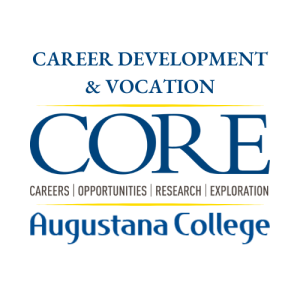Diversity, Equity, and Inclusion (DEI) Considerations in Career Conversations
We all know that students come to us from all cultural backgrounds, meaning the context of one’s life experience as shaped by membership in groups based on ethnicity, race, socioeconomic status, gender, exceptionalities, language, religion, sexual orientation, and geographical area. It is certain that our own worldview and workview is going to be different than that of the students we meet. Cultural competence plays a huge role in developing relationships and having productive career conversations with students.
Cultural Competence can be defined in many ways. Career Development and Vocation includes the following three areas for having culturally competent career conversations.
- Awareness: Understanding of differences and personal cultural identities. Basically, understanding that differences and biases exist and being aware of one’s own cultural identities and being curious about the cultural identities of others.
- Knowledge: Specific social histories and environmental contexts. Learning all you can about the different contexts in which your students live. This can be done by simply asking questions about who they are, what’s important to them, and who has a stake in their success.
- Skills: Culturally relevant strategies for applying cultural knowledge. Intentionally including questions and topics regarding their perspective and alignment with their career goals and direction.
Awareness
Developing an awareness of your own cultural identity can be difficult and requires vulnerability. The Social Identity Reflection is a great way for you and your students to better understand cultural identity. Reflecting on these helps you to develop this competency.
Instructions:
- Complete the worksheet
- Ask yourself:
- What was it like to complete the worksheet?
- Was there anything that surprised you? If so, what?
- Did you add any categories? Where were those important to you?
- Is there anything you want to explore further or take action on?
Knowledge
Understanding a student’s background takes intention. Some questions form the Career-in-Culture Interview can serve as a guide. Sprinkle some into your next meeting with a student.
- Tell me about yourself and include any information that you believe is important for me to better understand you.
- Who has a stake in your career success? Hove those people had an influence on your career goals?
- How do your career goals match or conflict with their expectations?
- How has your life style/life choices influenced what you see as possible career options?
- What do you see as your greatest challenge to pursuing your career goals? In what ways do you confront these challenges?
Skills
Following a meeting with a student ask yourself the following questions. Asking these questions will help you be more aware of your own biases, prompt you to ask specific questions which may be helpful in future the conversation, and allow you to check any biases you may have.
- What are your basic assumptions about the student?
- Based on that, what critical questions should you have asked that you did not?
- What cultural variables are operating in your student’s career situation?
